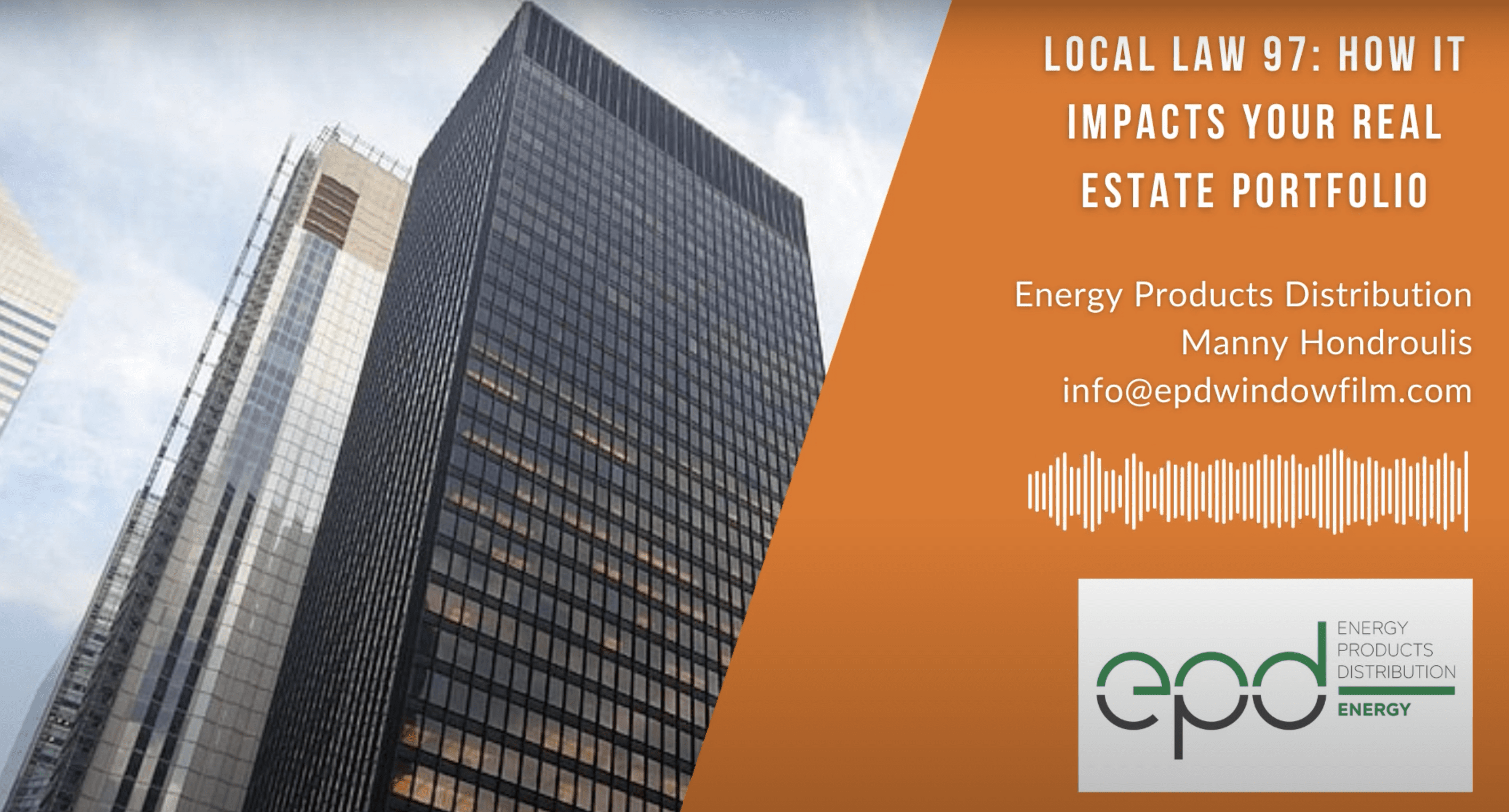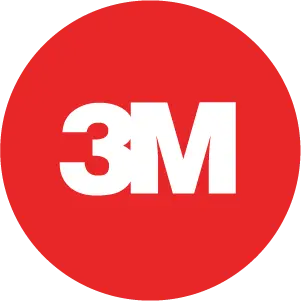
[Transcript] My name is Manny Hondroulis and I represent 3M Company’s window film products. I’m here today to discuss New York City’s Local Law 97 and how 3M’s window films can help achieve Local Law 97 compliance.
First, a brief overview of Local Law 97. New York City has pledged to reduce greenhouse gas emissions 40% by 2030 and 80% by 2050. Considering that buildings are responsible for 70% of the City’s greenhouse gas emissions, New York has passed legislation requiring owners to reduce the carbon footprint of their buildings. Failure to do so can result in significant fines levied against the building, in some cases amounting to seven figures.
Local Law 97 is asking owners to address the inefficiencies of their building envelopes. Many buildings in the City’s skyline are glass intense. Glass-heavy buildings are pleasing to the eye, allow in a lot of natural light, and provide for great City views. However, they are typically inefficient because no matter how efficient the glass, glass is often more energy inefficient than other building materials. In fact, in late 2019 Mayor Bill de Blasio said, and I quote: “We are going to ban the classic glass and steel skyscrapers, which are incredibly inefficient.“
Windows allow a significant amount of heat gain and loss that is controlled by running a building’s air conditioning and heating systems 12 months out of the year. Reducing that heat transfer can allow a building to run its HVAC system less, which in turn consumes less energy and reduces the building’s carbon footprint. And that is where 3M’s window film products come in.
3M has been manufacturing window films since 1966 and they are designed to reduce a window’s solar heat gain coefficient and U-Value. Applying 3M’s newest generation film, Thinsulate Climate Control 75 Window Film, to an existing window is almost like replacing the window with a new modern unit. It’s almost like taking single pane glass and turning it into double pane, turning double pane into triple pane, or turning non Low E glass into Low E glass, all at a fraction of the cost of window replacement and without the associated structural load implications or tenant disruption. And because the film is nearly invisible, there will be minimal change to the building’s appearance which will make Landmarks happy the building is historical. Building owners will like it too because of the associated 12 month utility savings.
Additional benefits are that 3M Thinsulate can help a building improve its Energy Star Portfolio Manager score and earn up to 11 LEED points. It is warrantied by 3M Company for 15 years and is eligible for ConEdison rebates and PACE funding.
The value proposition is clear, just like the film. Reduce heating and cooling costs without window replacement and while helping to achieve Local Law 97 compliance.
Email info@epdwindowfilm.com to learn more.

Energy Products Distribution is a Master Distributor of 3M Window Films, 3M Paint Protection Films, 3M Wrap Film Series 2080, 3M Protection Wrap Films, 3M Architectural Finishes, 3M Ceramic Coatings, and Windshield Skin. We sell our products to professional installers throughout the US who provide turnkey installations (labor and material) to end-users in the automotive, commercial, government, and residential markets. Contact us to learn more about the benefits of these products.









